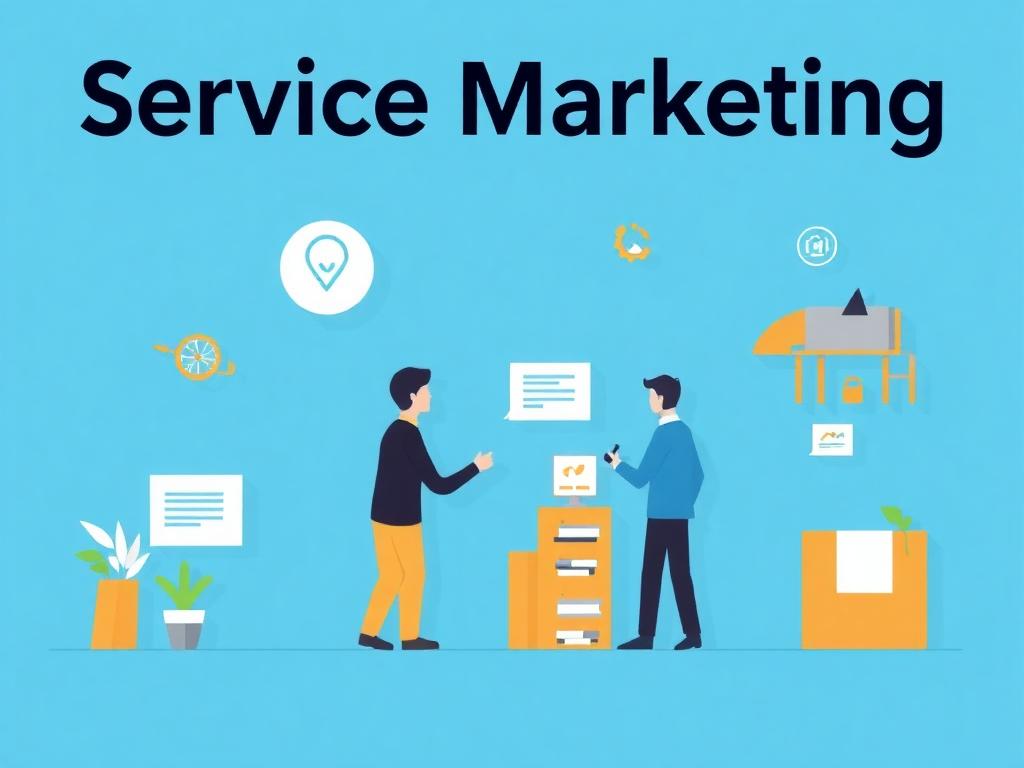Creating an effective service marketing strategy is essential for businesses that offer intangible products, such as consulting, healthcare, education, and hospitality. Unlike physical products, services are often experienced rather than owned, making it crucial to develop a strategy that highlights their value and builds strong customer relationships. Here’s a step-by-step guide to creating an effective service marketing strategy.
1. Understand Your Target Audience
The first step in developing a service marketing strategy is to identify and understand your target audience. Conduct market research to gather insights about your potential customers, including their demographics, preferences, pain points, and behaviors. This information will help you tailor your marketing efforts to meet their specific needs and expectations.
2. Define Your Unique Value Proposition (UVP)
Your unique value proposition is what sets your service apart from competitors. Clearly articulate the benefits and value your service provides to customers. Consider what makes your service unique—whether it’s exceptional customer service, specialized expertise, or innovative solutions. A strong UVP will resonate with your target audience and help you stand out in a crowded market.
Also Read: Service Marketing Triangle
3. Develop a Comprehensive Marketing Mix
The marketing mix, often referred to as the 4 Ps (Product, Price, Place, Promotion), is essential for creating a well-rounded service marketing strategy:
- Product: Define the service you offer, including its features, benefits, and any additional services or support.
- Price: Determine a pricing strategy that reflects the value of your service while remaining competitive. Consider factors such as cost, perceived value, and market demand.
- Place: Identify the channels through which you will deliver your service. This could include physical locations, online platforms, or a combination of both.
- Promotion: Develop promotional strategies to raise awareness and attract customers. This may include advertising, public relations, social media marketing, content marketing, and email campaigns.
4. Leverage Digital Marketing
In today’s digital age, an effective service marketing strategy must include a strong online presence. Utilize digital marketing channels to reach your target audience:
- Website: Create a user-friendly website that clearly outlines your services, UVP, and contact information. Ensure it is optimized for search engines (SEO) to improve visibility.
- Social Media: Engage with your audience on social media platforms relevant to your industry. Share valuable content, respond to inquiries, and build a community around your brand.
- Content Marketing: Develop informative and relevant content that addresses your audience’s pain points. This could include blog posts, videos, webinars, and case studies that showcase your expertise.
5. Focus on Customer Experience
Since services are often evaluated based on the customer experience, it’s crucial to prioritize exceptional service delivery. Train your staff to provide outstanding customer service, and ensure that every interaction reflects your brand values. Collect feedback from customers to identify areas for improvement and make necessary adjustments to enhance their experience.
6. Build Trust and Credibility
Establishing trust is vital in service marketing, as customers often rely on recommendations and reviews before making a decision. Consider the following strategies to build credibility:
- Testimonials and Reviews: Encourage satisfied customers to leave positive reviews and testimonials. Showcase these on your website and marketing materials.
- Case Studies: Share success stories that demonstrate the effectiveness of your service. Highlight specific results and outcomes achieved for clients.
- Certifications and Awards: Display any relevant certifications, awards, or affiliations that enhance your credibility and expertise in your field.
7. Implement Relationship Marketing
Service marketing is heavily reliant on building long-term relationships with customers. Implement relationship marketing strategies to foster loyalty and repeat business:
- Personalization: Tailor your communications and services to meet individual customer needs. Use customer data to provide personalized recommendations and offers.
- Loyalty Programs: Consider implementing loyalty programs that reward repeat customers with discounts, exclusive offers, or special access to new services.
- Follow-Up: After service delivery, follow up with customers to gather feedback and express appreciation. This demonstrates your commitment to their satisfaction and encourages future engagement.
8. Monitor and Measure Performance
To ensure the effectiveness of your service marketing strategy, regularly monitor and measure key performance indicators (KPIs). This could include metrics such as customer acquisition cost, customer satisfaction scores, conversion rates, and return on investment (ROI) for marketing campaigns. Use this data to make informed decisions and refine your strategy as needed.
Conclusion
Creating an effective service marketing strategy requires a deep understanding of your target audience, a clear value proposition, and a focus on delivering exceptional customer experiences. By leveraging digital marketing, building trust, and fostering long-term relationships, you can position your service for success in a competitive marketplace. Regularly monitor your performance and be willing to adapt your strategy to meet changing customer needs and market dynamics. With a well-crafted service marketing strategy, your business can thrive and achieve sustainable growth.
